
A view of the Isle of Purbeck in Dorset on the southern coast of England shows Studland Bay, the location of a sunken thirteenth-century ship known as the Mortar Wreck.
FOR THE PAST 750 years, a 25-foot-square mosaic in front of the High Altar of Westminster Abbey has been the stage for the coronation of British royalty. Known as the Cosmati Pavement, after a Roman family specializing in this type of decorative stonework, it was laid in 1268 on the order of King Henry III. Under the gentle light of suspended brass chandeliers, the colorful tapestry created from more than 30,000 pieces of marble, glass, metal, and gemstones glows and dances. Every monarch from King Edward I in 1274 to King Charles III in 2023 has been crowned on this flooring. And while the mosaic's gleaming pieces of black onyx, purple porphyry, and green serpentine immediately draw the eye, the stone into which the vibrant circles, squares, stars, and spirals are embedded, known as Purbeck marble, deserves equal attention.
A diver (right) explores the remnants of the wreck, which include a coffin lid made of a type of limestone called Purbeck marble.
Esta historia es de la edición January/February 2025 de Archaeology.
Comience su prueba gratuita de Magzter GOLD de 7 días para acceder a miles de historias premium seleccionadas y a más de 9,000 revistas y periódicos.
Ya eres suscriptor ? Conectar
Esta historia es de la edición January/February 2025 de Archaeology.
Comience su prueba gratuita de Magzter GOLD de 7 días para acceder a miles de historias premium seleccionadas y a más de 9,000 revistas y periódicos.
Ya eres suscriptor? Conectar
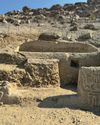
ORIGINS OF PERUVIAN RELIGION
While investigating looters' holes at the site of La Otra Banda in northern Peru's Zaña Valley, archaeologist Luis A. Muro Ynoñán of the Field Museum and the Pontifical Catholic University of Peru spotted carved blocks around seven feet below the surface.
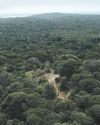
ISLAND OF FREEDOM
Many of the enslaved Africans sent to Brazil beginning in 1549 were from what is now Angola, where one of the most widely spoken languages was Kimbundu.
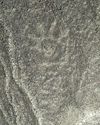
NAZCA GHOST GLYPHS
From the 1940s to the early 2000s, geoglyphs were discovered in the Nazca Desert of southern Peru depicting animals, humans, and other figures at the rate of 1.5 per year.
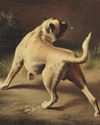
COLONIAL COMPANIONS
The ancestry of dogs in seventeenth-century Jamestown offers a window into social dynamics between Indigenous people and early colonists.
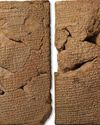
BAD MOON RISING
The British Museum houses around 130,000 clay tablets from ancient Mesopotamia written in cuneiform script between 3200 B.C. and the first century A.D.
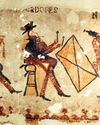
DANCING DAYS OF THE MAYA
In the mountains of Guatemala, murals depict elaborate performances combining Catholic and Indigenous traditions
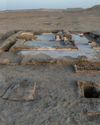
LOST GREEK TRAGEDIES REVIVED
How a scholar discovered passages from a great Athenian playwright on a discarded papyrus
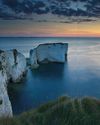
Medieval England's Coveted Cargo
Archaeologists dive on a ship laden with marble bound for the kingdom's grandest cathedrals
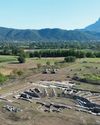
Unearthing a Forgotten Roman Town
A stretch of Italian farmland concealed one of the small cities that powered the empire
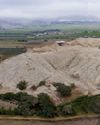
TOP 10 DISCOVERIES OF 2024
ARCHAEOLOGY magazine reveals the year's most exciting finds